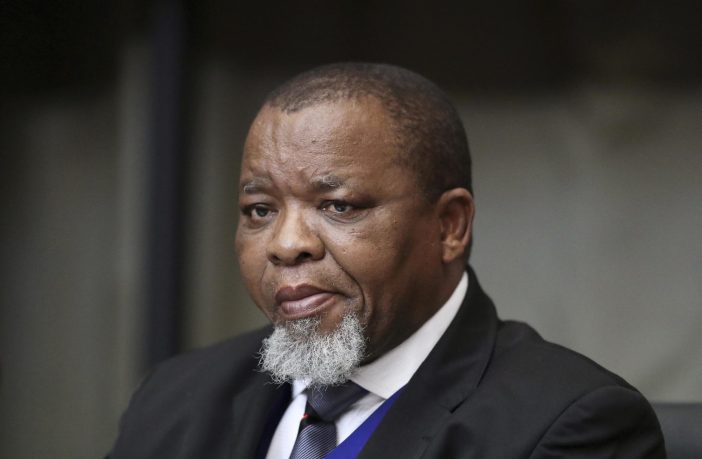- Three civil society organisations this week launched landmark constitutional litigation in the North Gauteng High Court against the South African government, demanding that it abandon plans to build 1 500 MW of new coal-fired power on grounds that new coal-fired power poses significant unjustifiable threats to constitutional rights.
The burning of coal is the biggest contributor to global climate change, in addition to unacceptable health impacts caused by air and water pollution. Government’s current plans to build 1 500 MW of new coal-fired power in South Africa are costly, unnecessary and an unjustified limitation of the Section 24 right to an environment not harmful to health and wellbeing, along with other rights, and should be abandoned. There is no justifiable basis for the limitation of constitutional rights because cleaner and less harmful renewable energy is both a feasible and cheaper alternative to new coal power.
This is the central argument of the #CancelCoal court case, launched this week by the youth-based African Climate Alliance (ACA), the community-based Highveld group, the Vukani Environmental Justice Movement in Action (VEM) and groundWork (gW), represented by the Centre for Environmental Rights (CER), against the Minister of Energy and the National Energy Regulator of South Africa (NERSA).
South Africa’s minister of Energy and Minerals, Mr Gwede Mantashe has repeatedly stressed security of power supply as his priority, promoting coal, nuclear and gas as sources of generation to replace old coal-fired plants. South Africa is the world’s 12th-biggest emitter of greenhouse gases, with wind and solar energy currently accounting for only about 6% of supply and coal more than 80%.
Related news: Pockets of funders still keen to finance coal power projects in sub-saharan Africa
The case was launched after government failed to respond to a letter of demand sent to Minister Mantashe on 17 September 2021 by CER on behalf of ACA groundWork and VEM, which demanded that government abandon its plans to build new coal-fired power as outlined in the Minister’s September 2020 determination for 1500 MW of new coal and the 2019 IRP. The organisational applicants have gone out of their way to afford the Minister ample opportunity to engage on the unlawful inclusion of the 1500 MW new coal allocation. Due to the Minister’s unresponsiveness, they have been left with no alternative but to institute these court proceedings in the public interest and in order to vindicate constitutional rights.
“New coal-fired power flies in the face of our constitutional right to an environment not harmful to health and wellbeing, not only for the present generations but for future ones too,” says Nicole Loser, Programme Head: Pollution and Climate Change at CER.
“We experience air pollution, water pollution, land pollution, everything is affected by the coal mines. The environment we’re living in is very destructive, so many people are sick. Coal is affecting members of the community’s health and comfort – people are living with cancer and respiratory diseases, and rely on oxygen and nebulisers just to survive. This case is a last resort – we are saying there should be no new coal power – it is too destructive,” says Ronald Mhlakaza, VEM Secretary General.
#CancelCoal court papers, submitted this week, highlight the findings of both international research, such as the recently published Intergovernmental Panel on Climate Change report, which confirms the need to urgently cut greenhouse gas emissions in light of the precarious state of our climate, as well as a series of in-depth expert analyses of the consequences of new coal-fired power specific to South Africa.
“It has been shown, incontrovertibly, that renewable solar and wind with flexible generation capacity, such as storage (even under circumstances where the sun does not shine and the wind does not blow), provide feasible and affordable replacement alternatives for coal power,” says Thomas Mnguni, environmental activist and coal campaigner for groundWork.
“South Africa has the opportunity to move away from its reliance on polluting fossil fuels and to protect constitutional rights.”
In particular, the expert local reports document the unnecessary cost and job losses, climate harms and impacts on social, physical and mental health and well-being for people living in South Africa, now and in the future.
The case also comes in the wake of COP26 and global consensus that coal must be urgently phased out if the world is to avoid catastrophic global warming.
Recent expert analyses completed by the Energy Systems Research Group (ESRG) at the University of Cape Town and the Climate Equity Reference Project (CERP) have also found that government’s plans to procure 1500 MW of new coal-powered electricity will cost at least R23-billion more than a least-cost optimal electricity plan for South Africa and is incompatible with South Africa meeting its climate commitments. Read more
What happens next in the case?
NERSA and the Minister of Energy have until 6 and 7 December 2021, respectively, to file the record of all documents and information related to the impugned decisions (known as the Rule 53 record), together with their reasons behind these decisions. The applicants will then have an opportunity to amend and/or supplement their court application, following which the Minister and NERSA will have to notify the applicants if they intend to oppose the relief sought in the application.
Author: Bryan Groenendaal
















